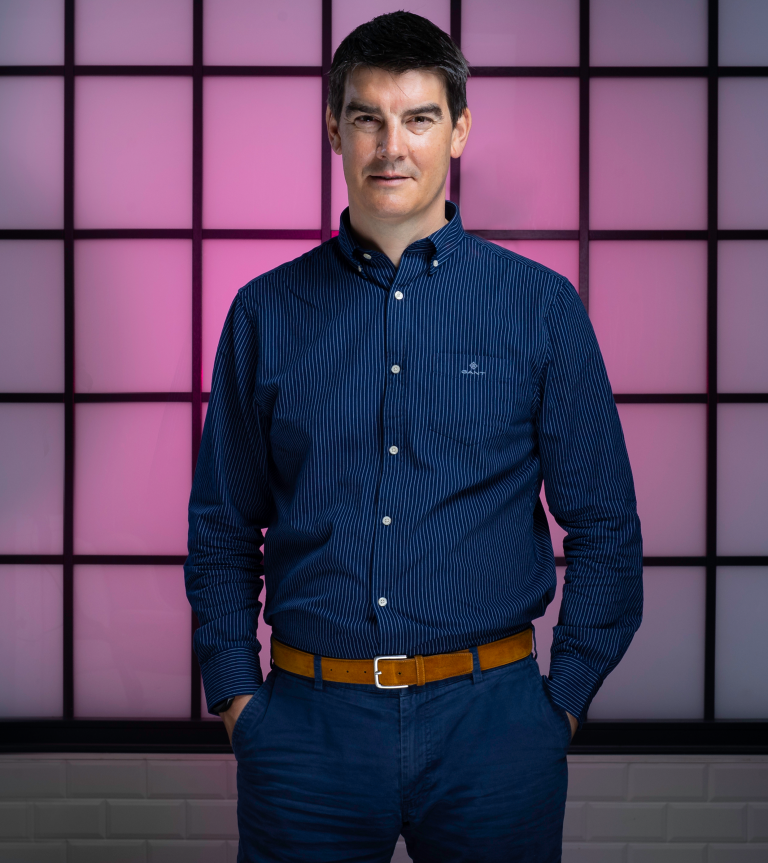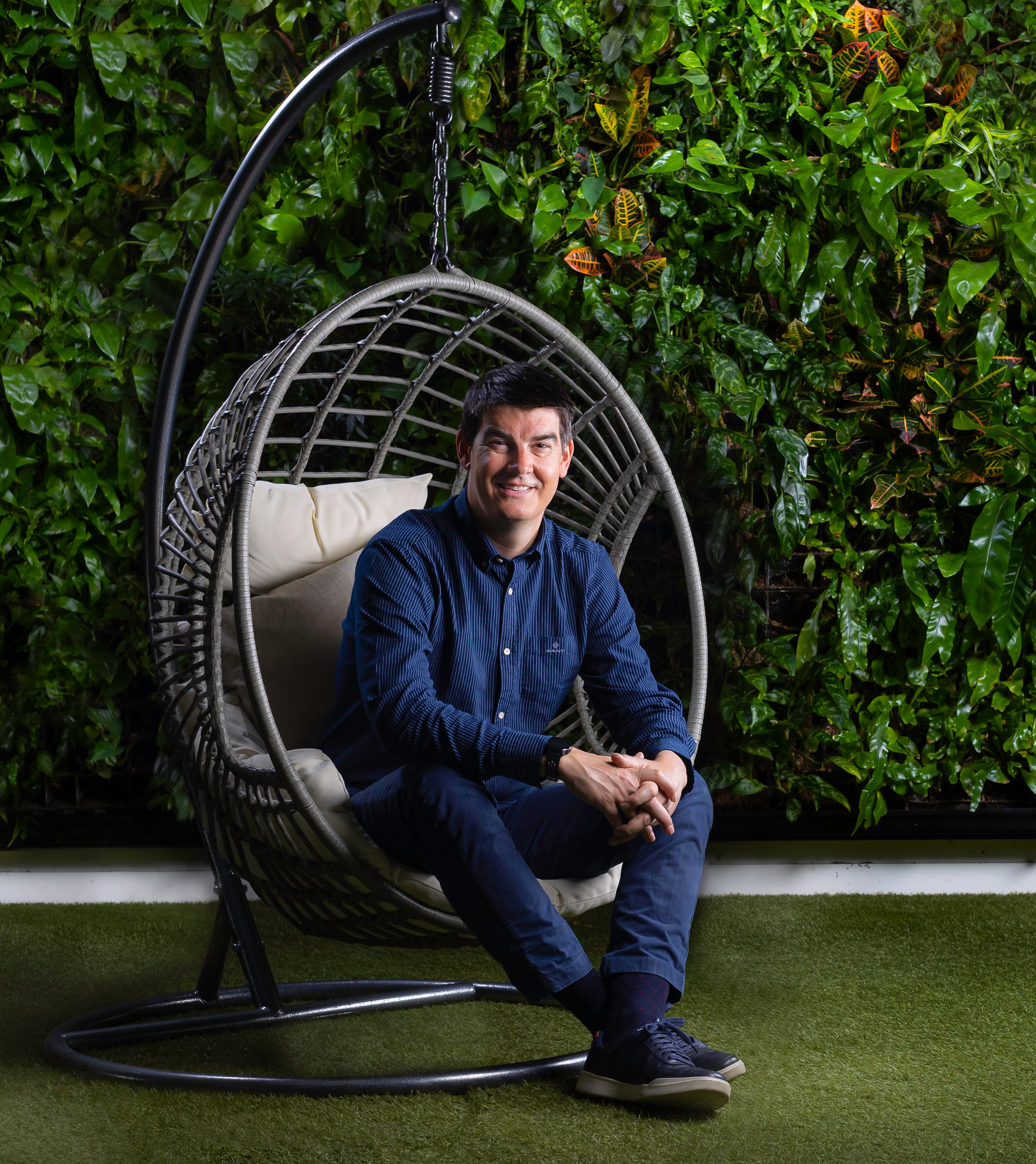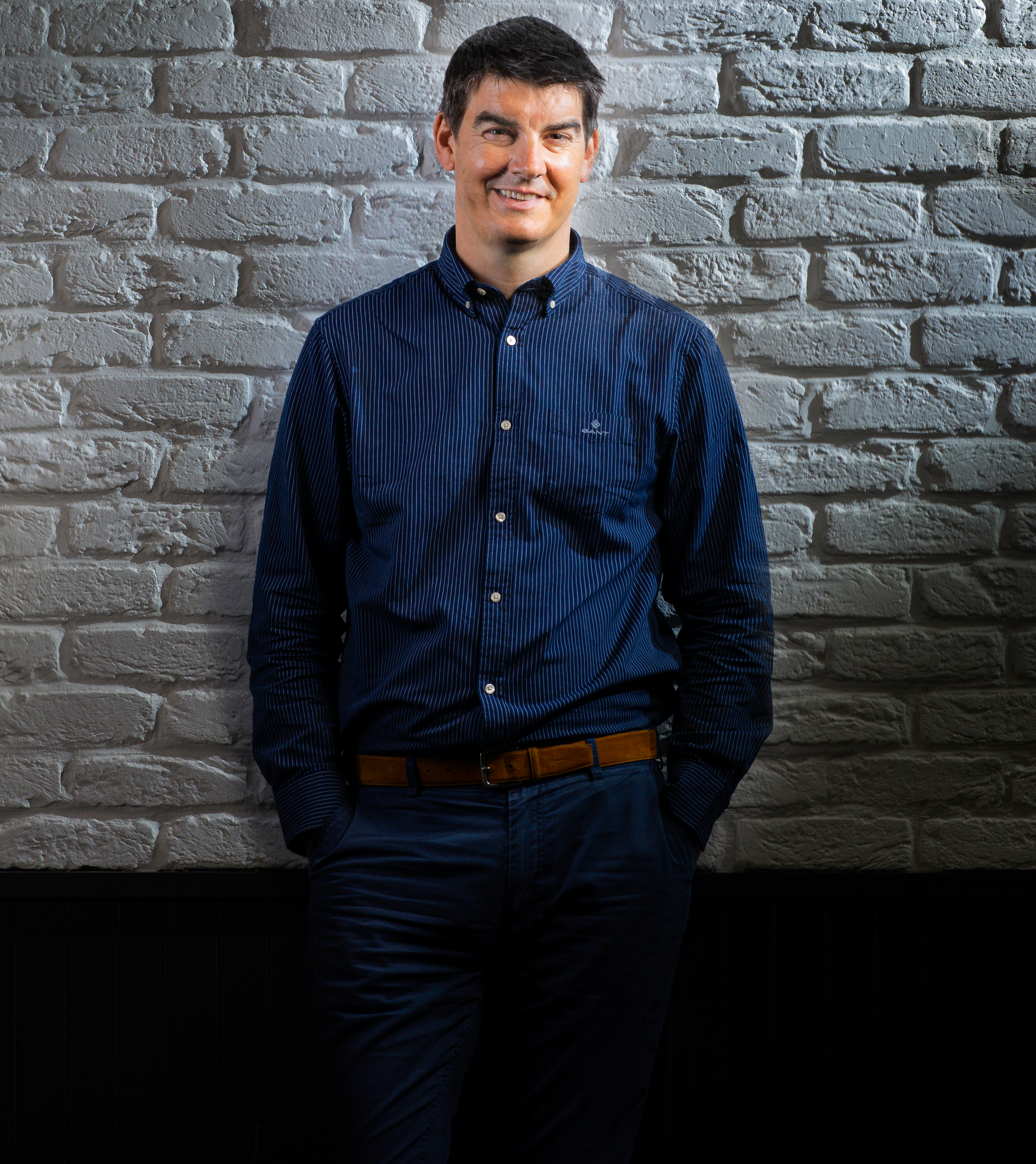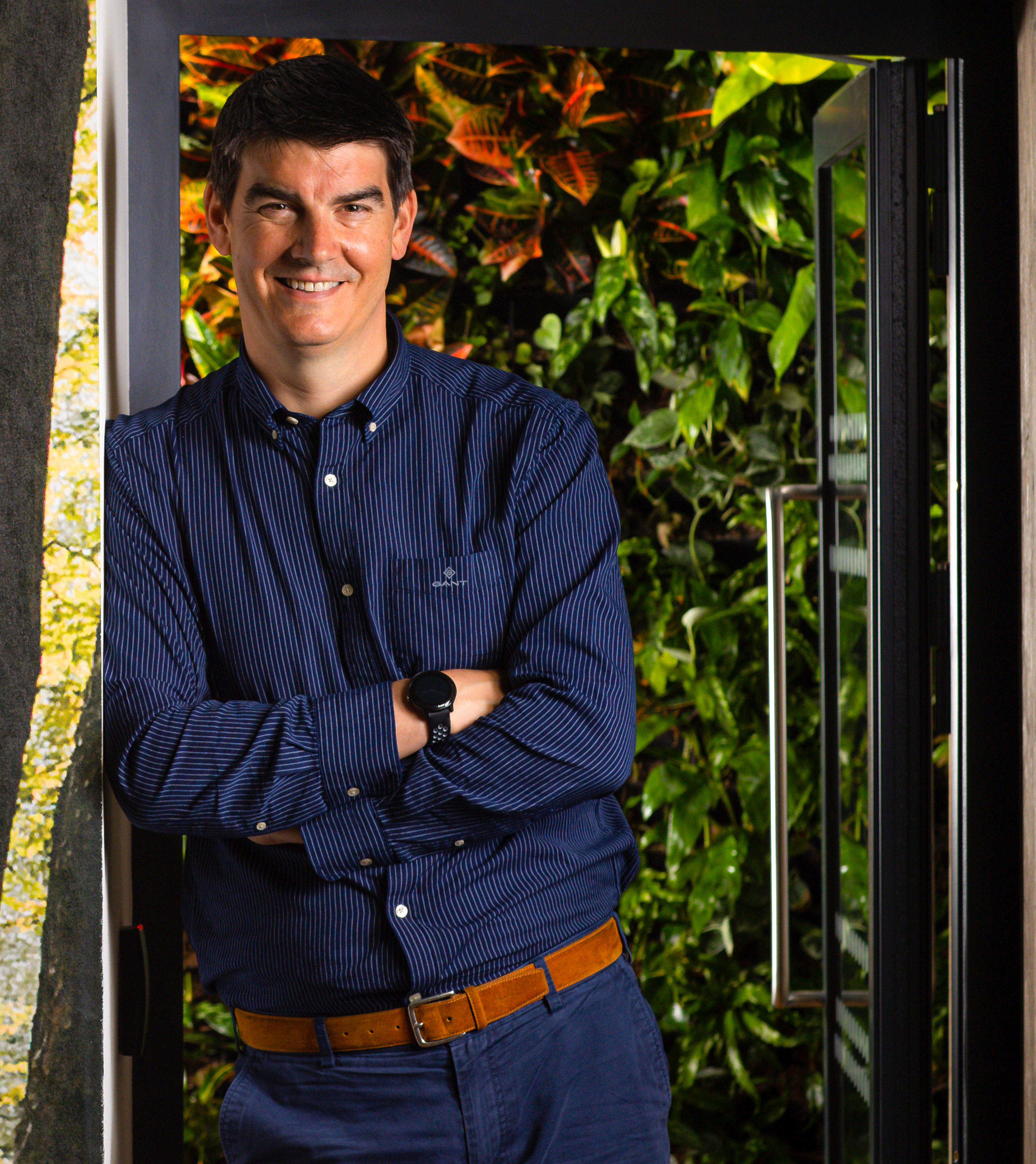Before comparison websites, businesses prospered from a lack of transparency and information.

Before comparison websites, businesses prospered from a lack of transparency and information.
I completed a history degree at Nottingham University, which didn’t naturally lead to an obvious post-graduate career direction and so my first job was in recruitment at Badenoch and Clark. It was a great business to work for and I ended up spending almost a decade there, starting as a recruitment consultant and working my way to becoming one of the Operations Directors. It was a period when recruitment was rapidly expanding and becoming more strategic. The company invested heavily in some excellent training and development, which was designed to really give people confidence to run off their own initiative and focus on building great relationships with clients. It was the end of the 1990s and very exciting times in terms of business growth, M&As and the dotcom explosion. The retail sector itself was in transition, in terms of the way it operated, as businesses migrated to online. My main recollection was that we were given great autonomy and responsibility, almost like running your own business, in as much as you were responsible for recruiting your own staff, as well as for training, motivating and remuneration. The key focus was on building clients and pretty much owning your own P&L. You couldn’t hope for a more expansive and demanding start to a career and in a very vibrant firm and sector. There were always plenty of opportunities to move jobs, but it took me ten years until I saw a role at Robert Walters. There, for first five years, I ended up running London and the South East for the recruitment division, before moving to Resource Solutions, the outsourcing arm, in 2017. Through outsourcing, I began to gain experience in broader HR business processes, which set me off on a new learning curve, which was more strategic and business integral. Through working with clients on a myriad of strategic sourcing needs, I began to develop an understanding of the internal business mechanisms, not just in terms of staffing, but the full hire, train and retain picture.

I guess my time saw me with one foot in the old days of fax and phone and the other in the technology that was coming in. This led firms to wonder about that balance of human interaction and technology in a traditionally people-centric industry. Looking back now, I believe recruitment was one of the first to ask existential questions about what staff would do when all the time-consuming elements of the job were carried out digitally. Of course, everything pointed to the importance of utilising time and resources to human capabilities, such as building client relationships. But these are interesting times for all companies and sectors now, whereby the strategy starts to look somewhat binary, if the only reason to automate is to avoid growing headcount. The focus has to be on how people provide greater value through human interactions, that can’t be replicated by machine code.

Absolutely, you couldn’t be in the industry and not be aware of that. But like anything, those firms who had their client interests at heart and provided value as a trusted partner, were the ones that thrived and are still around today. The point is, you can only ride the gravy train for so long, but I have to say that all my experiences with both companies were positive and I learned so much that has been essential to my HR career since. One thing is as true today as it was then, there is an enormous value that can be gained from working in partnership with great recruitment and outsourcing businesses that take the right approach. There’s a lot of great businesses out there which are really doing good work, with crucial specialisms and knowledge.

I joined RVU in 2018, because the business was in the throes of planning for expansion and the onus was on recruitment and talent, areas I felt very confident in. This was a dynamic business in an area of the tech commerce market that was very volatile and changeable. The real focus was on having the right leadership in place, with the onus on finding that balance between technical knowhow and stable management, as the two don’t always coexist. I was used to running teams and businesses, with predominantly young and ambitious people, hence it felt familiar. However, the elephant in the room for me was the big role I was being positioned to fill. My past experience was staffing-heavy and my HR exposure was in specific areas and could by no means be termed ‘general’. Nevertheless, I had many interviews – including with our large HR team from Red Ventures in the US – and, in each one when the HR questions cropped up, I answered as best I could. People generally nodded approvingly and I was appointed HR Director, with the instruction; “we’re pretty confident you’ll pick it up!” There’s nothing like learning on the job and fortunately, I was welcomed by a great internal team that really supported me. If you’re prepared to learn and adapt, the support structure is there. It was a big step up, but an opportunity too exciting to miss.
ZPG Plc. was the UK public company, which was originally the core foundation of Zoopla. Alex Chesterman, who founded Zoopla, acquired a number of other businesses – Hometrack and then, ultimately, Uswitch and Money – with the aim to build a portfolio of digital internet-based businesses. Three years ago, ZPG went private and it was acquired by a combination of shareholders, the largest of which were Silverlake from the private equity side and then Red Ventures from the operational side. Red Ventures is a collection of digital businesses in the US and runs over 100 different brands. It is a large player in running, owning and managing digital and internet-based businesses. When I joined, we rebranded the comparison website focused business as RVU and set about expanding. We started with c. 200 employees and now have c. 900. The core of the Uswitch business is providing advice and facilitating – from a digital perspective – for people making decisions around home services, such as their energy and broadband. The Money.co.uk side is then focused on financial products, such as, ‘what is the best banking account, holiday money or credit card?’. In both businesses, we are a technology company at heart and the largest proportion of our colleagues have technical skills, focusing on; software engineering, data analysis or digital marketing. Pre-COVID, we were expanding and during the pandemic, we’ve continued on that course. We’ve just completed the acquisition of the Penguin Portals business from Admiral, which in the UK includes Confused.com – a leader in insurance comparison. We’re very much a global employer now with colleagues in locations as diverse as France, Spain, India and Mexico and we’re continuing to grow with that core focus of B2C digital businesses. It’s really compelling to have that commonality of purpose, as an unbiased guide, to help consumers to make the best choices. We’re really making an impact on this market and continued growth is the driver.
I strongly believe that the single most defining element of any business is culture, because it forms every decision in recruitment, performance and reward, as well as who you do business and partner with. It must run though how people are developed and nurtured, because if you quote the mantra that “our people are our greatest asset” but the reality doesn’t back that up, you will soon be found out. Pre-pandemic, our commitment to diversity within the business was central to how we both saw ourselves and how we operated. Our focus has not changed, despite having to manage through the crisis and I think that says a lot about the organisation. In many ways, the pandemic has only served to sharpen our commitment as we’ve doubled our efforts to engage equitably with everybody working remotely. Some of that support will be HR services for example, whereby we brought in additional services for people and stepped up with more mental health counselling and trained more internal mental health first aiders. But overriding all that is leadership that is authentic, flexible and understanding on an emotional level. Since the pandemic, if anything, we’re communicating more regularly than ever before and on a variety of topics, recognising that people want to hear more than just company results. We were very fortunate as a business that nobody lost their jobs, or had to go on furlough. In fact, we continued to hire and actually grew headcount organically.
I think there is a strong momentum for change both in society, business and certainly from employees. This is a very important time that must not be squandered. For example, diversity, equity and inclusion are three different things. Diversity is a statistical measure, such as the gender balance within the business. Equity is about the process and policies you have internally and ensuring the ‘way the company works’ treats everyone the same and is free from bias – for example, does the business work for everybody rather than just work for most people? Finally, inclusion is actually how people feel. This is an emotional component which asks, are people truly engaged and can they bring their true self to work and feel supported, included and equal? Our focus has to be upon all three areas and our intent must be to keep moving them forward. Of course, it’s the right thing to be doing and yes, there is a very clear business benefit in terms of decision[1]making and outcomes. But for a business like ours that is focused on acting for the benefit of people, we have to reflect our beliefs, both internally and externally. Finally, we’re a technology, data-based company and people in our business think in terms of data. So when it comes to Diversity, Equity and Inclusion, we try to measure and track how we are doing, while being transparent and sharing that information with all employees. This visibility forces accountability, right across the business, including at CEO level. If people see that, you’ll find more people, particularly those in senior positions saying, “we’re accountable, we’re going to be transparent, we’ll provide you with that data and we’ll work towards it”. We know we’re not perfect as a company, but we’re trying to improve every day.
Without doubt! It’s ironic that something as disruptive and negative as the pandemic is being credited with progressing better working conditions. When I first started working, there was a feeling of terror if you were not at your desk at eight-thirty and that just seems Victorian now! Technology is the enabler, but the changes go beyond that. The critical changes are in the nature of the relationship between employers and employees on an emotional, intellectual and contractual level. Lockdown proved that people can be trusted to work remotely. When trust is reciprocal – that’s to say people can trust their employer to support, care for and invest in them, then you have the charter for a new era of work. When you see employees taking ownership, engaging and being productive, suddenly the old conventions of the nine-to-five look even more draconian. What I’ve seen during this crisis is that the enforced situation of lockdown has made trust unavoidable and this has opened up a new world of work, where people are engaged, take ownership for their responsibilities and are more actively reaching out to colleagues.
You have to work very hard to create the right environment, to attract and retain people today. You cannot take anyone for granted and you cannot expect inertia to be a viable strategy for retention. You need to give people interesting work, build and maintain a culture that people feel a part of and that they are contributing to. You also have to make sure that you’re investing in them, so that they are learning, developing, gaining new skills and being exposed to new experiences and opportunities. All of that is a constant, you cannot set the scene and stand back to admire your handy-work. Being competitive is all about attracting the best talent, having them stay as long as possible and with their productivity optimised. It’s a real challenge because the market has been incredibly competitive and will remain so as we continue forward.
You simply cannot be complacent and any business that struggles with the idea of junior staff having a strong voice will lose traction. It’s not just about how a business is organisationally structured, it’s about the culture within the business and how free people feel in terms of transparency, knowledge sharing and honest communication. We believe in radical candor, that there is real strength in having good influential communication skills. It is something we support and promote and there is no artifice in this. Our CEO wants to hear from graduates and so that image of what leadership represents has to be calibrated to make that happen. In so many ways, the leadership team and senior colleagues must have a different set of characteristics to previous generations. Now we believe humility, flexibility and empathy are essential qualities for a leader to have.
In a previous question you mentioned legacy issues and although RVU is new, there are brands within the business that have been, in relative tech terms, around for a long time: Uswitch is 20 years old and Confused.com was the very first insurance comparison website in the UK. But they’ve thrived by the qualities and values that we have been discussing. To answer your question about leader and management adaptation; we have purposefully developed management training to ensure they have the skills to develop. You just can’t put people into a role and not support them or, worse still, ask them to take on managerial responsibilities. Finally when it comes to the younger generation and the way a company needs to manage them I am hugely optimistic. I can’t overstate, from a cultural perspective, the impact that our graduates have on our business. The enthusiasm and fresh way they approach work, the benefit they add and the attitude they bring all adds to our culture. The younger generation is helping drive change in the workplace, but it’s an almost wholly positive change.
Now, more than ever, you cannot generalise. There are still some people who are motivated exactly the same way that people were motivated 50 years ago. But it is true that in the area we operate – the digital and technical world – there is perhaps a greater focus now on intrinsic rather than extrinsic motivation. Our employees really want to understand the impact of their work, hence the purpose of our company is a major component in motivation. If people are able to understand why their work counts and how it contributes to the collective effort, they can feel a connection. That’s the challenge and the great opportunity that we have as a business. We can then draw the strands together with our commitment to consumers, using our services, which is to find people the right deals, save them money and champion their rights. As an end goal, it’s a hugely noble business model with purpose. That’s why we work hard placing the individual in the big picture, so that they can see how their inputs feed into the overall component. Unquestionably, people are searching for understanding and purpose in their work and that’s the challenge for employers to be able to articulate.
Agreed. The old career ladder is gone, as are traditional pay grades and many historic conventions. Any company increasingly out of step with the modern world of work is going to have difficulties. It’s a challenge, but you don’t need to look back that far to identify why engagement and performance was low and why people were increasingly burning out. The direction of travel is now towards a more positive experience. For example, when it comes to performance management our approach is to take in as many different data points as we can. It’s about taking different people’s points of view, a mixture of how they would go about doing things, as well as what the outputs are and then trying to ensure that we are taking time to fairly calibrate performance across the board. When you’re analysing different data points, you’re also trying to look at it through a lens to say: “Is this equitable? Am I actually being fair in the way I am thinking about this? Am I being transparent?”. Then over time, you can start to judge relative performance. We have to keep on asking hard questions and not be afraid to challenge ourselves. There’s never an end goal, perfection doesn’t exist in business, in culture or how we operate. I came into HR by chance, but what hooked me was the constant quest to make tomorrow better than today and keep that momentum going and never be complacent. Being a steady, status quo guardian is not where HR should be, it’s about helping a business to evolve and now is a great time to do it. This pandemic has been fraught with uncertainty, but I can see real momentum and I’m confident that some positives can come from this time. It’s a paradox that, in working apart, we’ve come together in a more dynamic way. Where we’ve seen more of each other’s lives, we’ve developed greater openness and empathy and really, we’ve started to understand our colleagues as individuals. I think individualism has come to the fore through the dynamic of a shared experience. I read a comment from a pulse survey which said “I see colleagues less as co-workers and more as people”.
We are at such an exciting point. From an HR perspective, the next challenge is to evolve our culture, because after a lot of growth and the impacts of the pandemic, we need to take a properly considered perspective. We are a business that was a London-based technology company of 200 employees just a short while ago and now we’re coming up to 1,000 employees, with offices in London, Cardiff, Gurgaon in India, Madrid, Mexico City and Paris. We need to evolve our culture to incorporate these new businesses and we have to find that equilibrium between equality and commonality, with individualism and diversity. It’s a really exciting prospect as we continue to expand and broaden the horizons of the business. Our most valuable commodity will always be our people and on that front, the future looks incredibly bright.
With several acquisitions, RVU has grown at such a rapid pace over the last year. Our next step really is to focus on ensuring our people are aligned towards a shared purpose and are able to absorb the information and culture that being part of a new company requires. We will have a range of internal activities and projects in the works towards making this a reality. The business is also highly ambitious, so it is likely that we will continue acquiring more companies over the coming years, with the People team playing a key role in the ability to absorb more employees and evolve our culture even further. Of course, as RVU becomes more international as well, there is the challenge of tackling language barriers and cultural differences. In addition, most of our team has spent lockdown working virtually, so there hasn’t been the opportunity to connect with our new colleagues in person yet. Arranging collaborations between teams will be one of the essential steps for RVU in terms of sharing knowledge, processes and understandings, which will enhance our brand’s offerings to consumers. This will be one of the key evolutions for us as the restrictions ease. My personal greatest learning during the last year was discovering that there were no limits to our adaptability on both a personal and a professional level. The smoothness of moving from office to home working really showed our resilience as an organisation. The next step towards our hybrid way of working will be a test and learn approach, but I’m confident that we can master it and create a new working cadence that benefits everyone. The HR and recruitment industry as a whole will face new challenges as restrictions ease. Many organisations, like RVU, will be adopting hybrid approaches to working – many however will not. A lot of top talent may have a preference for one or the other type of environment, which will leave very polarising choices for some when selecting a new employer. The need to attract and retain key talent is only going to get more intense and I suspect the organisations that adapt fastest and most effectively will be the ones that gain the upper hand.
University of Warwick – Human Resources – Shared ServicesSalary: £23,144 to £25,138 per annum, pro rata
University of Plymouth – HR OperationsSalary: £33,966 to £37,099 per annum – Grade 6
The Head of HR Operations role has been created to harmonise and support the delivery of exceptional HR practices throughout the organisation.From Azets UK –